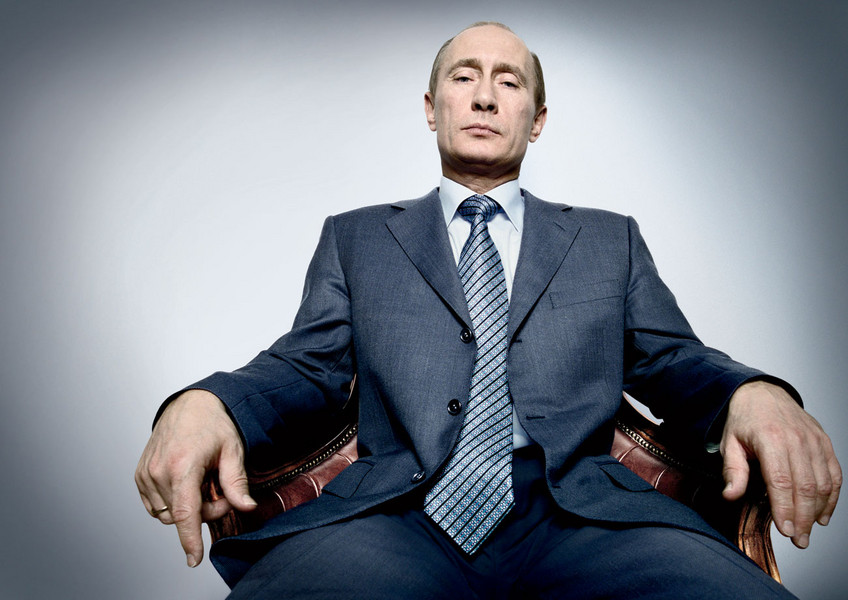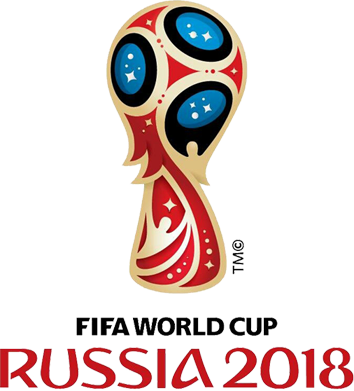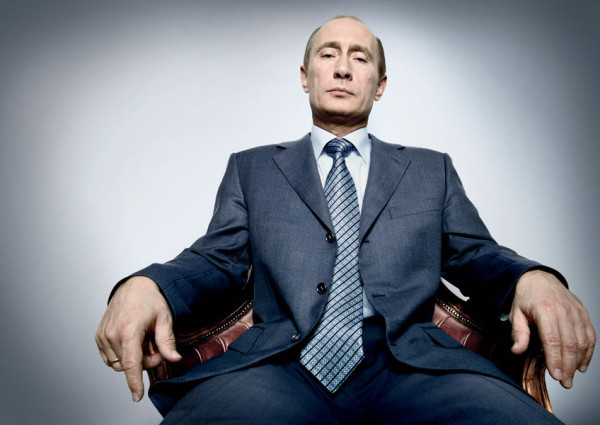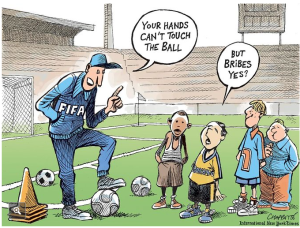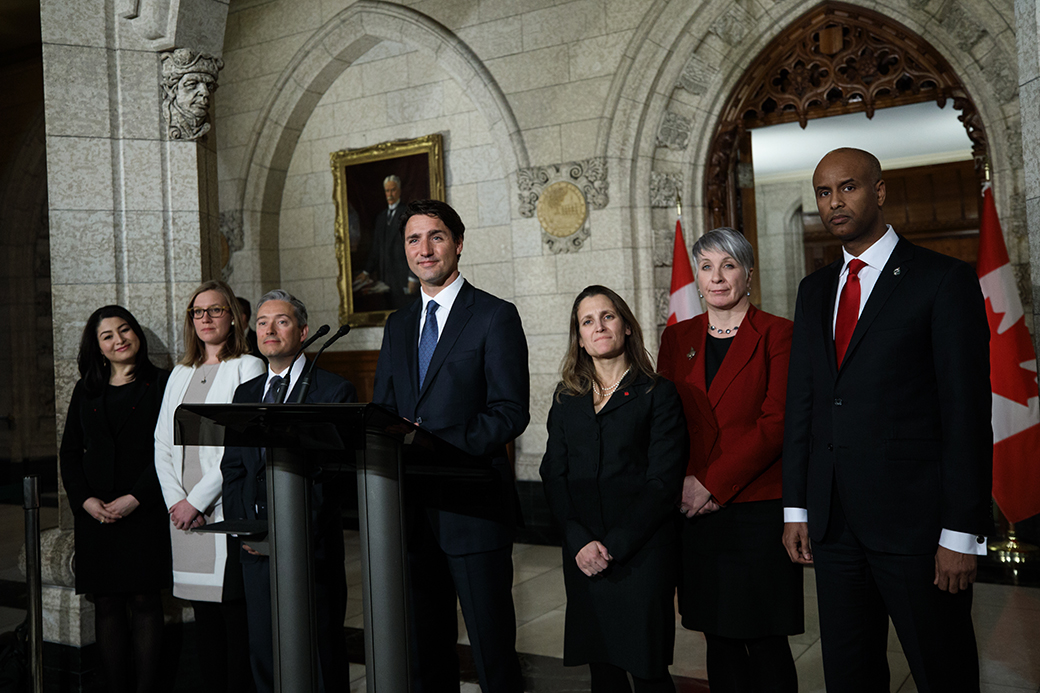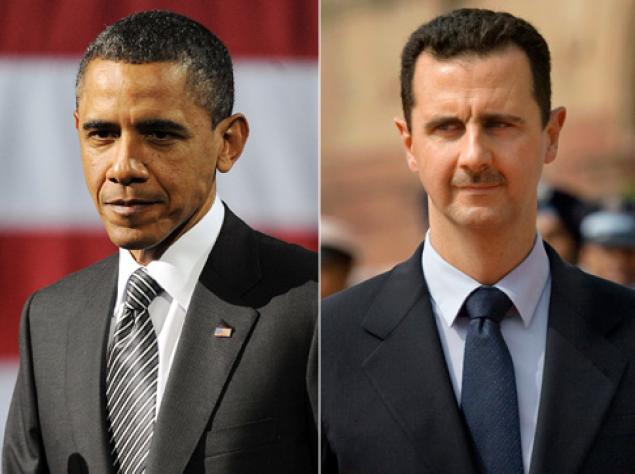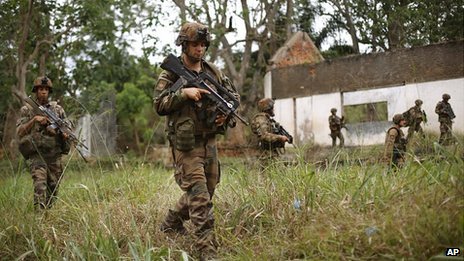This Week’s Water Cooler Question:
The most recent FIFA corruption allegations have Russia’s President, Vladimir Putin, screaming foul against the United States.
Is the FBI-led investigation into FIFA corruption a mere political move by the US because the 2018 World Cup will be held in Russia?
Should NATO countries boycott the 2018 World Cup if Russia is still “involved” in the Ukraine?
The Responses
Jeff: No, NO!
Program Editor, International Business and Economics
Of course the FBI investigation is politically motivated. But there is no reason sport should be as well. Not only is it incredibly unfair to all associated developers, sponsors, countries, and especially athletes to be deprived of a goal they’ve worked for years on, it’s not as if boycotting actually does anything. The 1980 and 1984 Olympic boycotts didn’t accomplish anything past smearing the spirit of international competition with political fingerprints. 30 years later, we should not be making the same mistakes.
Victoria: Who Runs The World?! Politics!
Program Editor, Women in Security
Let’s be completely honest with ourselves, of course this is politically motivated. Everything is! The Western world has been trying to poke the Russian bear for a while now. Instigating any kind of punishment for Russia’s “dabbling” (I would say “invading” but I’m not trying to start another debate) in the Ukraine – why not ruin their aspiration of being Charming-International-Sports-Hosts as well? And for good reason. Fifa is really corrupt, everyone knows it. It’s about time someone was held accountable, if the goal of continuing to isolate Russia was the reason the FBI started investigating, then at least we’re attempting to oust corruption in FIFA as well.
Should we boycott the 2018 World Cup? I’m divided on this. I would say yes, because why would we give Russia the benefit and acknowledgement of holding such an event while they are violating international law? I would feel like a hypocrite cheering for the USA team as they play on a Russian field, while there’s still a war going on right next door. . . but, what’s the alternative? I don’t think canceling the event would do any good either, in a weird-twisted way, then Putin wins. The world would have to alter its plans because he says, “I don’t give a….”

Samara: Who Cares?
Program Editor, View From Ukraine
It is almost blatantly obvious that the FBI investigation of FIFA corruption is a political move by the US. We have been told there has been wrongdoing within the FIFA organization for the past 24 years, including the 1994 tournament that was held in the US. Yet, suddenly, the FBI becomes interested in “soccer crimes” just before the World Cup is to be held in Russia. Interestingly enough, this investigation just happens to coincide with rising tensions between the two nations. I’m sure the FBI could spend their time and resources investigating something more….useful.
So, should NATO countries boycott the World Cup 2018 in Russia? To answer this, a few more questions must be asked. Were the 2008 Beijing games boycotted? Or Sochi 2014? Or for that mater, the 1934 World Cup in Italy or the 1978 World Cup in Argentina? The answer to all of the above is no. If NATO countries do not boycott the 2018 World Cup, the world will get a closer look (maybe a bit skewed) at the corruption that is occurring in Russia. If anything, this will only bode well for the US and further tarnish Russia’s image on the global stage.
Sandra: Good Timing.
While it is not likely that the investigations were carried out simply because of Russia hosting the World Cup, but one could at least suspect that the timing of the arrests, and their intended outcomes were politically motivated. It is true that the Swiss investigation focused on corruption allegations related to the 2018/2022 World Cups, but the FBI had been focusing primarily on the Americas. The ex-CONCACAF executive Chuck Blazer pleaded guilty to corruption charges, and subsequently became an informant, seemingly before the Ukrainian revolution. In all likelihood, the investigation into corruption within the football governing bodies started without having Russia in mind.
Both Swiss and American authorities must however have suspected and expected that the timing of the arrests could lead to renewed public scrutiny and doubt over Russia and Qatar’s World Cup bids, where Russia won at the expense of England, and Qatar at the expense of the US. If the investigations prove that there was corruption involved, FIFA (post-Blatter) has already warned that both countries could lose the right to host.
Now more than ever, losing out on “Western” participation and economic interests in the World Cup would be a big blow for a host nation. As such, a boycott could be a significant and powerful continuation of existing sanctions on Russia. Before the NATO countries reach such a decision, they could be preempted by Union of European Football Associations (UEFA), which has threatened to organize an alternative 2018 tournament over its dissatisfaction with the organization of FIFA. In such a case, the economic and public impact could be the same, but without the inflammatory high-level political conflicts.
For many, this issue is undoubtedly connected to the perceived role of sports in society, and its potentially unifying qualities. For the American public, what felt like the greatest victory: boycotting the 1980 Olympic Summer games in the Soviet Union, or the Miracle on Ice that same year? Nevertheless, perhaps Russia’s transgression is inexcusable to the extent that there is no option but to boycott, even if that strengthens their conviction and resolve, and as a result of doing what seems morally right, tensions increase; the conflict worsens.

